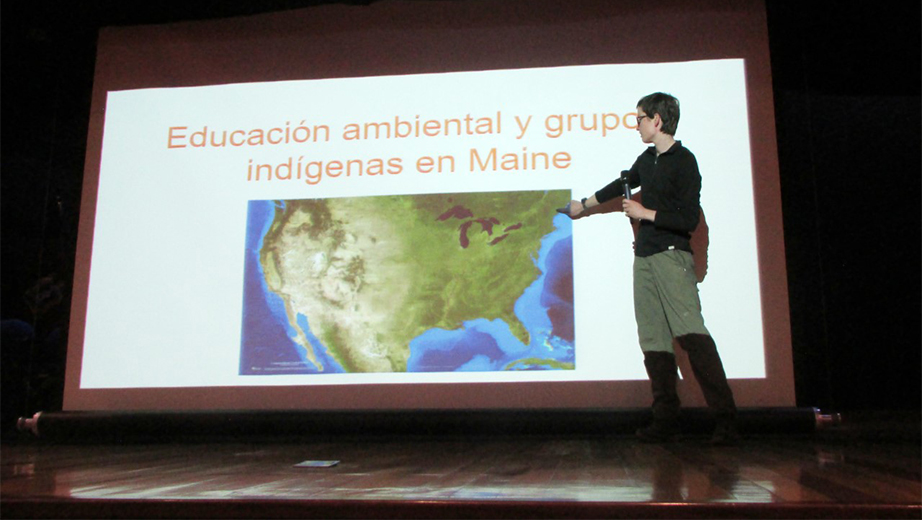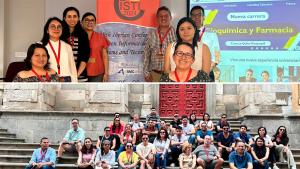UPS students analyzed strategies for environmental education
UPS students analyzed strategies for environmental education

"Strategies for environmental education" was the topic of the conference held in the university's branch campus in Quito which was led by Honora Spicer from Harvard University and Keaton Nager from Stanford University. The conference was attended by students who major in pedagogy and intercultural bilingual education; the aim was to reflect on the relationship between interculturality, the environment and natural resources.
This event was held twice. The first was on January 24th and was attended by third and fourth year pedagogy students who were there to learn about the methodology for environmental education, with alternatives that can be developed to foster the vision of care and responsibility.
The second was on January 27th and it was for students who major in Intercultural Education. They learned about the strategies to develop agricultural and rural skills in young people and facilitate their connection with the environment, culture and the city. In this regard, Honora Spicer spoke about the children and adolescents who live in urban areas of the United States and said "they haven't had contact with nature because of the excessive use of technologies." According to Spicer, contact between people and the ecosystem is fundamental because it allow the sense of preserving the environment to develop.
Dario Inca, UPS student, spoke about his concern: "There is something serious happening, farmers devalue nature because now they have a capitalist idea, in other words, produce to get money and they do whatever is takes to abandon the farm and stop working, this results in nature losing its value"
Before ending the event, professors thanked the specialists for sharing this information and students for participating. Aurora Iza, professor of Bilingual Intercultural Education, said that these topics are important for students who project themselves as educators. Iza believes that "education and pedagogy are the branches that can be in charge of transmitting environmental strategies for a better coexistence and caring of nature," he said.






Follow us
Follow us